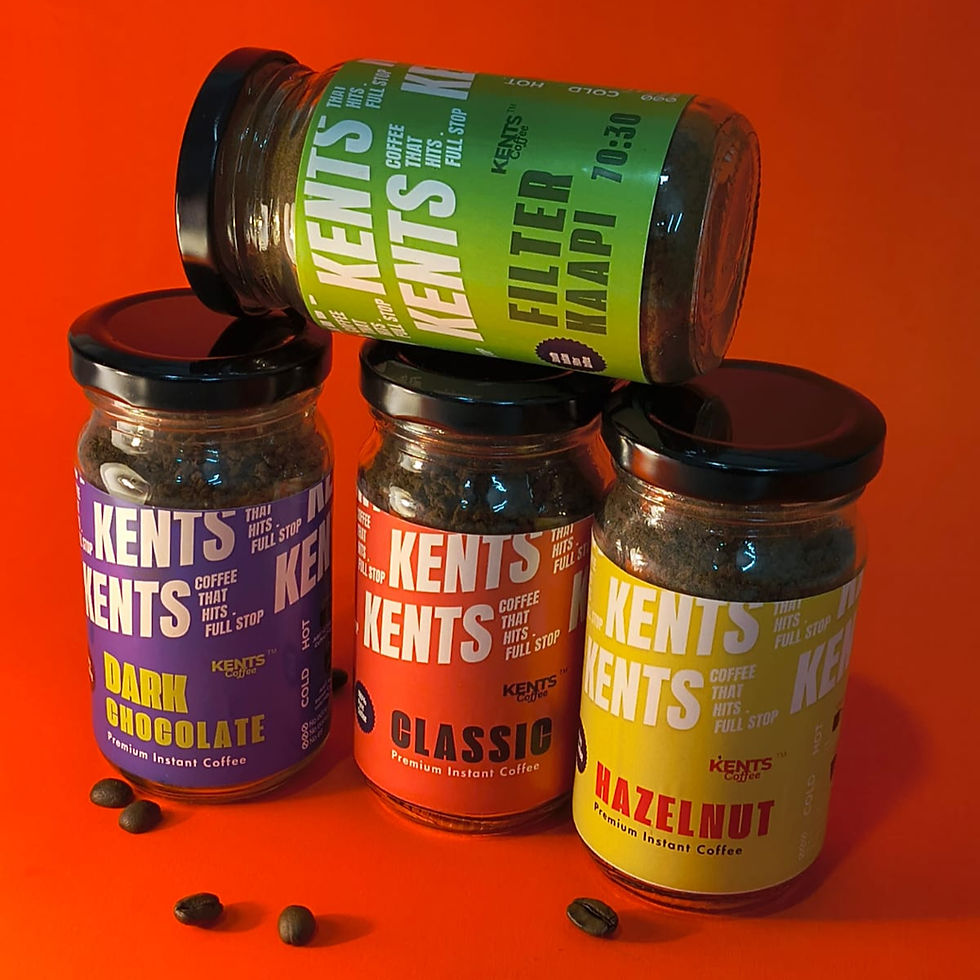Does Coffee Cause Acne? The Real Truth About Caffeine, Breakouts & Skin Health
- Harsh Patel
- May 14, 2025
- 3 min read
For many of us, coffee is a non-negotiable morning ritual. It kickstarts the day, boosts focus, and adds comfort to our routine. But if you’ve been struggling with persistent breakouts, you might be wondering—could coffee be messing with your skin? In this blog, we dive deep into the science of coffee, caffeine, and acne, and break down how your daily cup could be affecting your complexion.

What Is Acne Really? A Quick Science Recap
Acne occurs when pores become clogged with oil (sebum), dead skin cells, and bacteria. Factors like hormones, diet, stress, and genetics play a major role. Common types include blackheads, whiteheads, papules, and cysts. Hormonal fluctuations are often the main driver behind adult acne.
Coffee and Acne: Is There a Connection?
While coffee itself isn't a direct cause of acne, its effects on your body—especially when combined with other ingredients—may contribute to breakouts. It's not about blaming coffee outright, but rather examining what’s in your cup and how your body reacts to it.

Caffeine and Hormones: A Stressful Relationship
Caffeine stimulates the central nervous system, increasing alertness—but it also raises cortisol, the body’s primary stress hormone. Elevated cortisol levels can increase oil production in the skin, which clogs pores and leads to acne. One study showed that caffeine intake can elevate cortisol by 30%, especially in people already under stress.
Is Coffee Dehydrating? Why That Matters for Your Skin
Coffee is a mild diuretic, which means it can cause increased urination and potential dehydration if not balanced with water. Dehydrated skin can lead to excess oil production as your body tries to compensate, ultimately worsening acne. Always aim to balance your coffee with adequate hydration throughout the day.
Milk, Sugar & Syrups: The Real Acne Culprits in Your Cup
This is where things get tricky. Many coffee drinkers aren’t sipping plain black coffee—they’re adding milk, sugar, flavored syrups, and whipped toppings. These additives can spike insulin levels, increasing inflammation and potentially contributing to hormonal acne.
Milk contains hormones that can interact with your own, increasing sebum production.
High-glycemic sweeteners can trigger insulin spikes, which are associated with acne flare-ups.
A 2016 study found that dairy and high-sugar diets were positively associated with moderate to severe acne in adolescents.
But Wait—What About the Antioxidants in Coffee?
Not all is bad—coffee is actually rich in antioxidants like polyphenols and chlorogenic acid, which can help fight inflammation and oxidative stress. These compounds may actually be beneficial to skin health and help reduce signs of aging.
So, if you’re drinking black coffee in moderation, the antioxidant benefits could outweigh the negatives for most people.
Should You Stop Drinking Coffee If You Have Acne?
Not necessarily. Instead of quitting cold turkey, consider the following:
Switch to black coffee or use plant-based, unsweetened milk.
Cut down on sugar or syrups.
Limit intake to 1–2 cups per day to avoid hormonal spikes.
Monitor your skin’s response to changes.
What to Do If You're Breaking Out After Coffee
If you suspect coffee is playing a role in your acne:
Try going without it for a week to observe changes.
Reduce added sugars and dairy in your drink.
Stay hydrated—drink at least 2-3 liters of water daily.
Support your skin with a balanced, anti-inflammatory diet.
Professional Help: When to See a Dermatologist
If acne persists despite dietary and lifestyle changes, it’s time to consult a dermatologist. Professional treatments like topical retinoids, oral medications, or hormonal therapies can help address the root cause of breakouts.
Frequently Asked Questions
Q: Can coffee trigger acne? A: Indirectly, yes—mainly due to caffeine’s effect on stress hormones and added sugars or milk.
Q: Is black coffee bad for skin? A: Not at all. In fact, black coffee in moderation can offer antioxidant benefits without the sugar/dairy drawbacks.
Q: Should I stop drinking coffee if I have acne? A: Not necessarily. Try modifying your coffee habits before eliminating it altogether.
Q: What drinks can I switch to? A: Consider herbal teas, matcha, or lemon water, all of which are gentler on the skin.
Conclusion: Sip Smarter, Not Less
The verdict? Coffee doesn’t cause acne directly, but the way you drink it—and how your body reacts to caffeine—can make a difference. Focus on cleaner coffee habits, stay hydrated, and monitor your skin. If you're already dealing with acne, take a step back and evaluate what’s in your cup.
Looking to switch to a smoother, clean-roasted coffee that’s easier on your system? Try Kent’s Coffee. Their “Ethiopian Groove” blend is light, flavorful, and perfect for those with sensitive skin or digestive systems. It’s time to sip smart—with quality and your skin in mind.




Comments